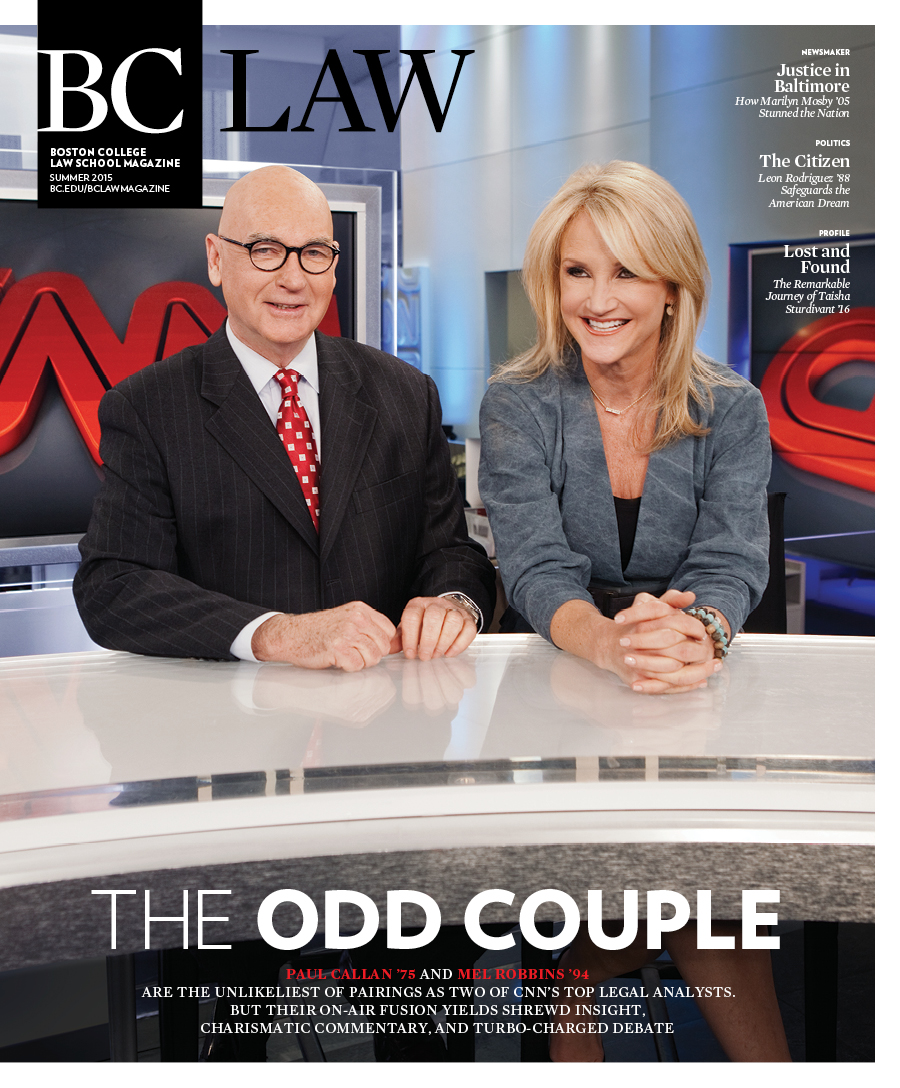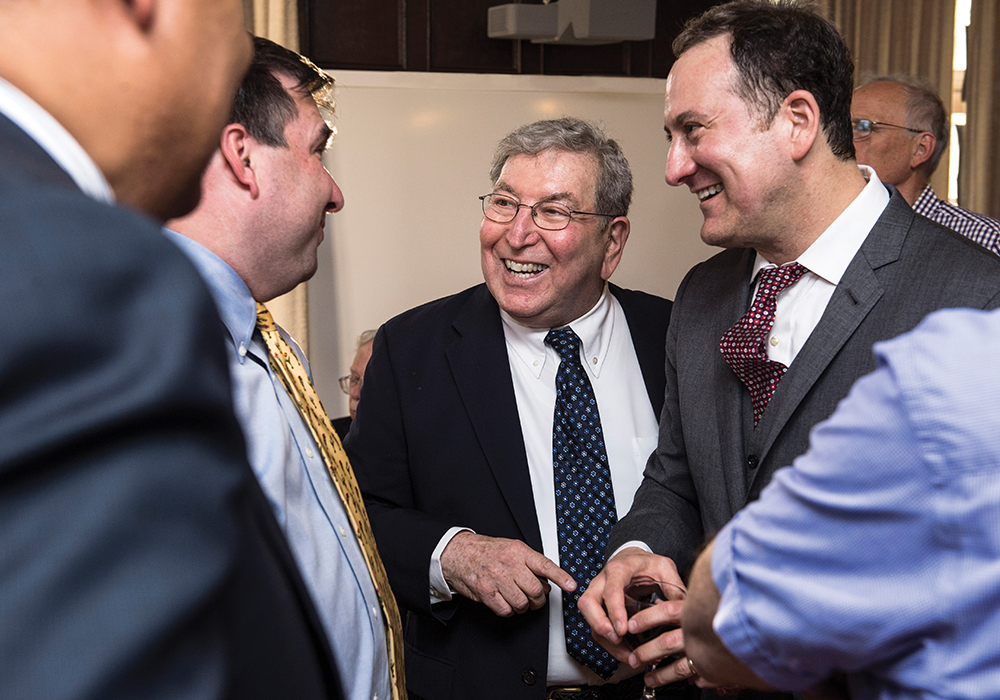Professor Sanford Katz’s son Andy summed things up in one sentence: “This is a historic night.” He was speaking at the May 7 retirement party for his father, a BC Law faculty member for forty-seven years. The event drew friends, colleagues, and family from across the country—including about a dozen of Katz’s former research assistants—who came to pay tribute to his prodigious output as a scholar and, more personally, his unflagging commitment to generations of students as both teacher and mentor.
One of those students, US Senator Ed Markey ’72, recalled in his remarks having arrived at the Law School as a student on the same day in the same year that Katz arrived as a professor. “He made you love the law the way he loved the law,” Markey said, calling Katz a great teacher and wise advisor.
Fellow long-time professor Hugh Ault described how academic careers often take one of two paths: People become revered scholars in their ivory tower or they become deeply invested in their community. “What Sanford has done is both of them,” Ault said.
Former research assistant Phillip Weiner ’80 spoke of coming to law school determined to be a labor lawyer only to have his career path rerouted by Katz, who felt his potential lay elsewhere. “They say that certain teachers do have an impact,” Weiner noted. “That happened to me, all because Sanford Katz said, ‘Try criminal law.’” Weiner became a war crimes tribunal judge who, at Katz’s urging, established an internship program at The Hague to which Katz happily ever after recommended students.
A whole host of other speakers also expressed their fondness and admiration for Katz. Among them was Professor Ruth-Arlene Howe ’74, who said of him: “He was my first teacher, then a colleague, then a promoter, then a supporter.”
Beaming and characteristically avuncular, Katz began his remarks with a nod to T. S. Eliot. “It’s the journey, not the arrival that matters,” he said. He talked about his mentors and said he’d tried to continue their tradition by encouraging his own students.
Finally, he reminded the audience that with a book in the works, he was not yet saying goodbye. “I’m not going away,” he said. “So I’ll see you around.”



